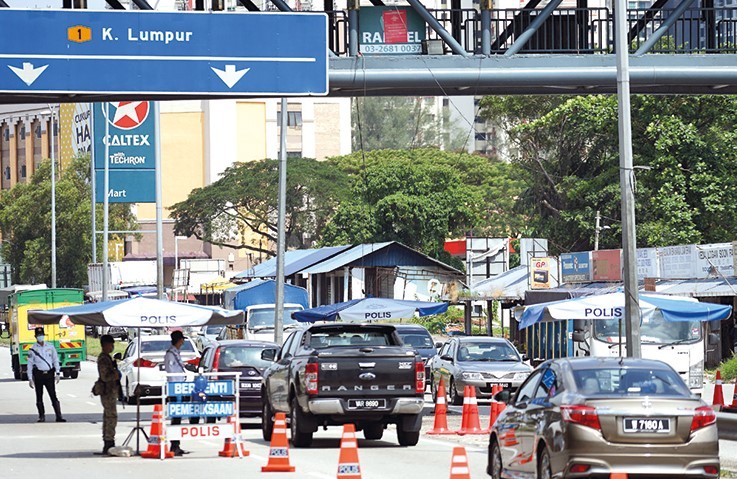
The number of workplace clusters is expected to narrow with the enforcement of a total lockdown tomorrow, but a faster vaccination rate must be enforced, an expert said.
The Federation of Private Medical Practitioners’ Association Malaysia president Dr Steven Chow has called for mass vaccination of the entire vulnerable population in the shortest time possible.
He said the present process of getting the vaccine is frustratingly slow and is a disincentive for a successful roll-out.
“We support the call of our other medical non-governmental organisations to do away with this cumbersome system. It is the bottleneck that is holding us back.
“Speed is the key to overcoming the spread of the virus. We need to have more centres for the population to get their vaccine, including all health clinics, hospitals and general practitioners clinics. We don’t need ‘supersport-style’ vaccine centres,” he said in a statement.
Chow added that it is not necessary to have a digitalised system that is not integrated, citing “we don’t need apps that do not talk to one another. We need people to go to their doctors and have their jabs on the spot”.
An employer at a small business, who requested anonymity, told The Malaysian Reserve (TMR) the lockdown will help to reduce workplace clusters as people are no longer mixing intentionally or unintentionally.
“Employees usually mingle around via crowded places like supermarkets, public transportation and also queueing to buy food. As an employer, the lockdown has pros and cons. I want to commence the economy as soon as possible but to do so, people must be healthy.
“The lockdown will curb Covid transmission at the workplace, however, the faster people get vaccinated, the faster the economy can reopen,” TMR was told.
The employer believes that as the virus keeps mutating, infected employees end up spreading the virus at a quicker rate and with no obvious symptoms, which makes it harder to track.
“Earlier, people didn’t understand about the virus mutating. Now they know and I think people are more receptive towards the total lockdown,” said the employer.
The government last Friday announced a total lockdown, save for essential services and economic sectors, in order to flatten the curve as Malaysia recorded more than 50,000 Covid-19 cases last week.
According to Health DG Tan Sri Dr Noor Hisham Abdullah, Selangor, Johor and Penang reported the highest number of workplace clusters with the manufacturing sector identified as the highest contributor compared to other sub-categories, namely public administration and construction.
The Union Network International-Malaysia Labour Centre (UNI-MLC) president Datuk Mohamed Shafie Mammal said the country’s current development is of great concern to its members who are employees amid reports of increasing cases involving the workplace and the community.
UNI-MLC has appealed to the government for an immediate and comprehensive lockdown nationwide similar to the first Movement Control Order to save the people.
“Under this call, the government can allow very important industries such as food and beverages, grocery stores and supermarkets, as well as medicine (pharmacies), to operate so that the food supply chain remains unaffected,” he said.
He also pressed for the government to provide a new stimulus package to help those affected.
In Penang, members of the Penang Manufacturing Industry Advisory Council have unanimously agreed on efforts to support the government in overcoming the Covid-19 pandemic, including the mass vaccination for economic frontliners.
The International Trade and Industry Ministry’s Public-Private Partnership (PPP) Immunisation Model allows companies with over 1,500 employees to set up on-site vaccination centres — where the government will bear the costs of the vaccines, while the logistic and medical personnel expenses will be incurred by the private sector.
The Free Industrial Zone, Penang, Companies’ Association and Small and Medium Enterprises Association (Samenta) welcomed the initiative, however, Samenta honorary secretary general Yeoh Seng Hooi pointed out that SMEs would not be able to meet the 1,500-employee criteria and will be left out from the PPP model.
Another effort that the council has agreed on is implementing the Deep Throat Saliva (DTS) rt-PCR screening for factory workers that is cost-effective.
The Federation of Malaysian Manufacturers Penang has initiated the Penang SAFE programme, with the support of the state government, to provide DTS rt-PCR screening solutions for factory workers.
Source: https://themalaysianreserve.com/2021/05/31/lockdown-only-a-respite-but-fast-vaccination-needed/

